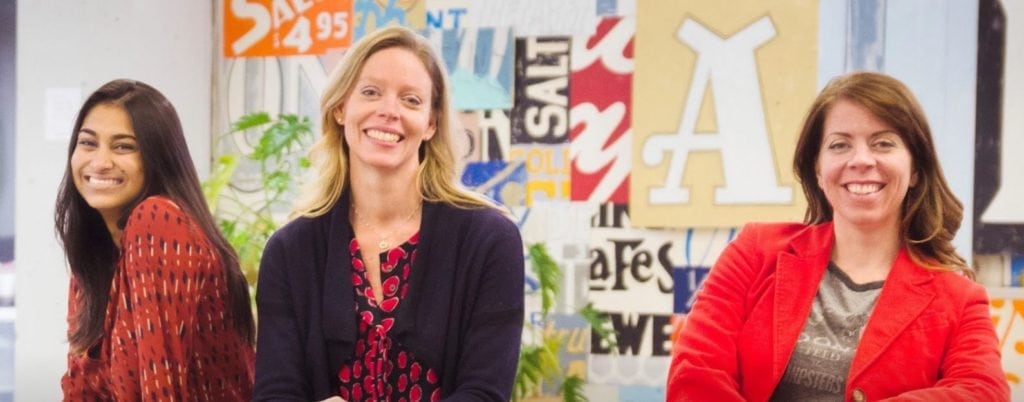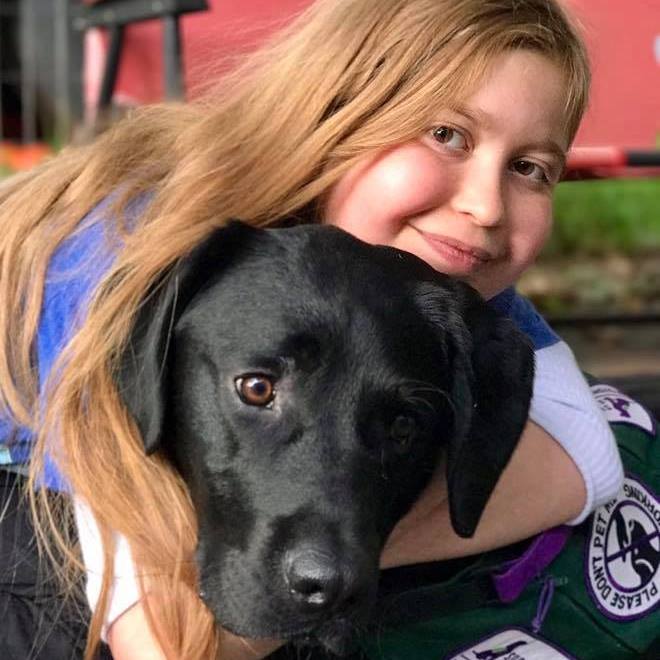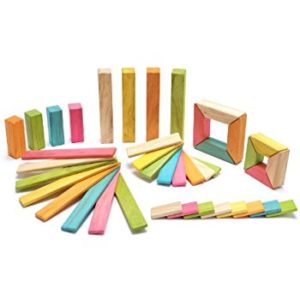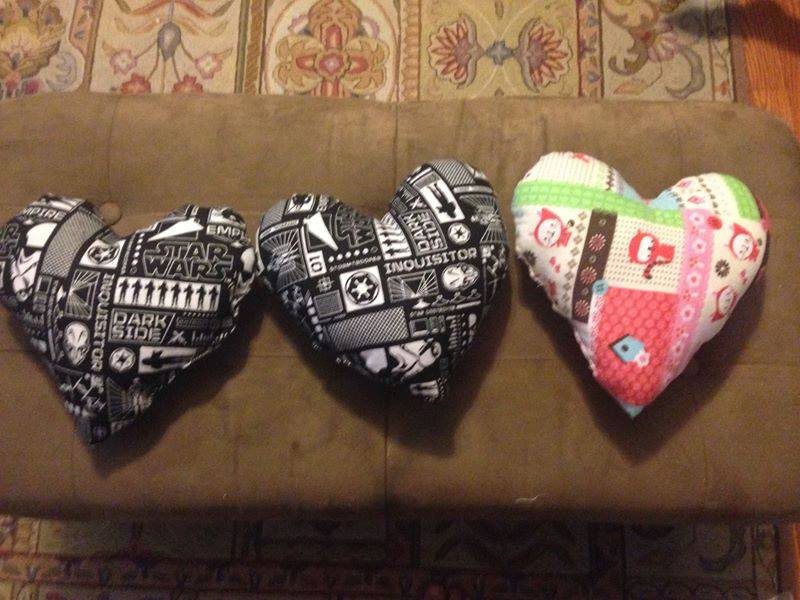In 2005, David and Catherine Cook, both high school students, came up with an idea for an online yearbook as opposed to the traditional hard copy. This brother and sister team started “myYearbook,” it became popular with schools who would pay to have their yearbook on the site. Over the years however, David and Catherine would figure out ways to expand myYearbook’s reach including making it available for older demographics, introducing online chatting, gaming, and moving into different countries as well. They ended up merging with Quepasa Corporation and renamed their company to MeetMe. Today MeetMe is worth over 100 million dollars. This is just another example of how a simple, yet innovative, idea can be extremely successful and make a dent in any market. 
Archive for Millennial Entrepreneurs – Page 9
Ben Silbermann and Evan Sharp, co-founders of Pinterest, both used their prior experiences in the technology and the internet to start a very successful business of their own. Silbermann was a Google employee until he left to design apps on his own. However, these failed to gain any traction, until eventually he designed a product inspired by his own love of collecting things.
Similarly, Sharp worked at Facebook as a product designer. He met Silbermann in New York, and then joined his team to make Pinterest a reality.
Pinterest is really about idea sharing. People enjoy telling others about their ideas, and Pinterest gives them a platform to not only do so but also to gauge how a community will respond to it. It is a great place to see other peoples ideas as well, and find inspiration for many different things.
This business idea is a great example of collision in a liquid network. In the realm of technology and the internet, two men with the experience and ideas necessary collided to make a business that could possibly eclipse Facebook and other social media giants.
Without one another, the idea would just be a pair of hunches, and nothing would have come from it. However, in a community where ideas can bounce around, change, and grow, true innovations can be born.
 Do you ever wonder what could be acheived in 54 hours? In 2016, Pittsburgh Startup Weekend Women’s Edition was hosted for the first time ever… and as a result, the winning team Go Jane Go’s Amelia App is now in the beta testing phase. Kate’s idea to create an app to connect women with other professionals in cities away from home was given a chance to develop when she and her sister Ellen attended Startup Weekend and met UX Designer Sanjana. Together they were able to create a solid foundation for their venture while not only winning the competion, but receiving resources to help them in their quest to develop it. These three individuals skills paired with the proper resources and enviroment accelorated the creation of a community womens app.
Do you ever wonder what could be acheived in 54 hours? In 2016, Pittsburgh Startup Weekend Women’s Edition was hosted for the first time ever… and as a result, the winning team Go Jane Go’s Amelia App is now in the beta testing phase. Kate’s idea to create an app to connect women with other professionals in cities away from home was given a chance to develop when she and her sister Ellen attended Startup Weekend and met UX Designer Sanjana. Together they were able to create a solid foundation for their venture while not only winning the competion, but receiving resources to help them in their quest to develop it. These three individuals skills paired with the proper resources and enviroment accelorated the creation of a community womens app.
This year at Pittsburgh Startup Weekend, three of the top winning teams were comprised of some your own fellow GROVERS, with business ideas for Active Home, Chute and The Good Find… so be on the lookout for these potential businesses in the future!

Learn more about…
- Go Jane Go www.amelia-app.com
- Startup Weekend PGH www.techstars.com
- Active Home www.activehomepgh.com
- Chute www.chutestartup.co
- The Good Find www.thegoodfind.co
Jack Kim is a young entrepreneur that is still in high school in Seattle. He is the founder of a search engine called Benelab that is designed to make philanthropy easier by generating donations. Jack’s project is not-for-profit and he plans to donate all of the revenue generated by Benelab. Jack quickly learned the power of a search engine’s ability to generate wealth from very little traffic through his work with search engines in the past. After developing an outline for his idea, Jack got a team of his high school classmates together to start working on the project. So far, Benelab has been incredibly successful at generating wealth, and all of this wealth is then donated to different charities and organizations to help the less fortunate. Benelab provides an easy yet effective way of enabling everday internet users to participate in philanthropy, even if they do not realize it.
“Many people think of charity as something limited to the rich or “good”, but in reality it’s something that can and should be incorporated into anyone’s daily life – you just have to know how.” – Jack Kim
 The story of how MishiPay came about is quite simple, waiting in line for 20 mins at a supermarket just for a can of soda is incredibly too long. Why wait for so long for a product, surely the process could become faster if they allowed self-check out? Mustafa Khanwala came up with just that process, he came up with the idea for an app that allowed customers to scan a bar code on a product at a supermarket and pay for it through their phone. This allows the customer to save a great amount of time and the store to save money and time without the need for a lot of check-outs. Mustafa fits the qualities of an Entrepreneur by simply establishing a problem and then following through with a solution. It’s amazing to think that something so simple as waiting can be easily solved and taken as an opportunity from a start-up business.
The story of how MishiPay came about is quite simple, waiting in line for 20 mins at a supermarket just for a can of soda is incredibly too long. Why wait for so long for a product, surely the process could become faster if they allowed self-check out? Mustafa Khanwala came up with just that process, he came up with the idea for an app that allowed customers to scan a bar code on a product at a supermarket and pay for it through their phone. This allows the customer to save a great amount of time and the store to save money and time without the need for a lot of check-outs. Mustafa fits the qualities of an Entrepreneur by simply establishing a problem and then following through with a solution. It’s amazing to think that something so simple as waiting can be easily solved and taken as an opportunity from a start-up business.
Elizabeth Rees grew up in an entreprenural family, her father managed a printing plant called Kubin-Nicholson. Although she didnt always plan to become involved with the family printing business, she ran a line of modular wallpaper using the plant’s digital paper that became an instant hit among her friend that sparked serious word of mouth. Elizabeth has traveled through many towns and cities growing up and her entrepreneurial spirit has been cultivated along the way. Having to decorate her many homes around the globe, the idea for a modern wallpaper for the urban home was formed. Chasing Paper is an e-commerce brand that specializes in stylish, removable wallpaper that was led by Rees with backing by her families company. It is on track to hit $1 million in sales with its wall paper retailing at $40 a piece. This entreprenur found a way to use what she had availible to cater to her own style and passions.
Just before the Ipad 2 came out, a young university student named Garrett Gee had the hunch that there would be blog posts all over the web listing the top 10 apps for the new device. Garrett then came up with the idea that there should be much easier QR code software and apps to use with the new device. Because Garrett felt that he was on to something, he go to work immediately.Had to act quickly to be the first to implement his idea. After quickly getting an Ipad 2 into the hands of his ios developer, Garrett spent two sleepless nights developing his service before it was completed. He named his app Scan and recruited two fellow classmates to help develop the service further and it was finally launched in February of 2011. In the first year, Scan earned over 10 million downloads and made over 1.5 million dollars from venture capitalists such as Google Ventures.
In class we have talked about how many ideas originally stem from a lucky hunch like Garrett’s. When a hunch is taken seriously, it can lead to big ideas and successful accomplishments like the scan application. Hunches are able to develop by clashing with other people’s ideas and hunches. After getting the input of his two fellow classmates, Garrett’s hunch was improved and transformed into the extremely successful idea of Scan.
Lorelei McIntyre-Brewer is a ten-year-old from Duncannon, Pennsylvania. She was born missing half of her heart, and her twin brother, Rory, passed away before the two could ever meet. She underwent major open heart surgery shortly after birth and has since then undergone 21 medical procedures including three open heart surgeries.
After her third open heart surgery, Lorelei’s lungs collapsed and she underwent a long grueling recovery where she was given a compression heart pillow to relieve the pain… but the pillow was much to big for a girl like herself. This made her think… why aren’t their smaller compression heart pillows made for children? So then at the age of 5 her mother taught her to sew and she began making compression heart pillows for pediatric open heart patients, aiding them in their own recovery’s. She named her organization Heart Hugs, and it spread like wildfire!
Heart Hugs works with children’s hospitals, orphanages and families to provide these pillows at no cost for patients and families through the kindness of volunteers around the world that help Lorelei ensure that no child is turned away. Her non-profit organization has only been the start of her work as she helps her brother Cavan, the 2015 Army Military Child of the Year, manage Socks for Vets, which provides goods for veterans and helped to train and care fore goats used in providing service support to wounded warriors.
Lorelei has been nationally recognized, receiving recognition from the Points of Light Foundation, the Maryland Volunteerism Award, and being featured on Dr. Oz show in 2015. She is affiliated with many organizations, including 4-H where she was recognized in 2016 and 2017, where I was lucky enough to meet her in person at multiple state conferences. Lorelei is not even thinking about slowing down. As she explained, “I am missing half of my heart, and people sometimes think I can’t do anything, but I can.” And she does.
https://www.facebook.com/CHDHeartHugs

“You cannot teach creativity; all you can do is let it blossom, and it blossoms in play.” Recognizing that children can build motor skills, creativity, sharing, and even fractions and scale simply though play, Tegu set forth on a mission to create a toy with hidden lessons. The wooden building blocks come in various shapes, all of which are set to a 30mm scale so as to i nsure that they all work with one-another, are designed with strategically placed magnets on the inside completely concealed from sight. With this cool feature, children can use the blocks to build animals, cars, houses and much more. However this is not the most compelling fact about Tegu.
nsure that they all work with one-another, are designed with strategically placed magnets on the inside completely concealed from sight. With this cool feature, children can use the blocks to build animals, cars, houses and much more. However this is not the most compelling fact about Tegu.
The company is based out of Honduras and has quite a unique story. Setting it apart from both charity’s and multi-million dollar company’s, Tegu took a unique approach to starting their business. While most companies think of ways they can make money  and a desired product, and charities think of ways to help people, Tegu does both. When Chris and Will Haughey, the founders of Tegu, were starting their business they began by asking the question “Could we create a for-profit company based in Honduras that would foster a positive social impact through its business?” They began by finding an issue, framing it, and working from there. The issue was not the lack of an innovative magnetic building blocks however. The issue the brothers discovered was 30% unemployment in a struggling economy in South America.
and a desired product, and charities think of ways to help people, Tegu does both. When Chris and Will Haughey, the founders of Tegu, were starting their business they began by asking the question “Could we create a for-profit company based in Honduras that would foster a positive social impact through its business?” They began by finding an issue, framing it, and working from there. The issue was not the lack of an innovative magnetic building blocks however. The issue the brothers discovered was 30% unemployment in a struggling economy in South America.
Tegu could have built their thriving company in America, closer to friends, family, and their primary market, but that was not their mission. The factory in Honduras is self-sustaining and employs otherwise jobless Hondurans giving them the chance to make a living and earn promotions. Tegu discovered a new way of charity combined with business and they are thriving. They were the first of their kind, making them the best of their kind, and they are proving it.
Timothy Hwang: FiscalNote and Legislation Prediction
Timothy Hwang and FiscalNote
Timothy Hwang founded FiscalNote in 2013. Prior to entering the field of legal data and business, Mr. Hwang spent time in politics, beginning in the 2008 presidential campaign of Barack Obama and later serving on the Montgomery Board of Education. He is a Princeton graduate and is a “World Economic Forum Technology Pioneer, a Trustee on the Board of the Community Foundation of the National Capital Region (the largest funder of non-profit and philanthropic initiatives in the region), and a member of the The Economic Club of Washington, D.C. and the Young Presidents Organization (YPO)”. (timothyhwang.com)
In the years since it was founded, FiscalNote has become the largest company in the field of legal data analysis. It has offices worldwide and works with over 1,300 organizations and governments. FiscalNote uses data, AI, breakthrough machine-learning techniques and other technological aids to learn over time how governments legislate — on the federal, state, or local level — and allow companies to predict how they will need to react to changes in legislation. The FiscalNote website says that they, “support an enterprise-based approach to modern government affairs.” (fiscalnote.com)
Copyright © 2025 All Rights Reserved


